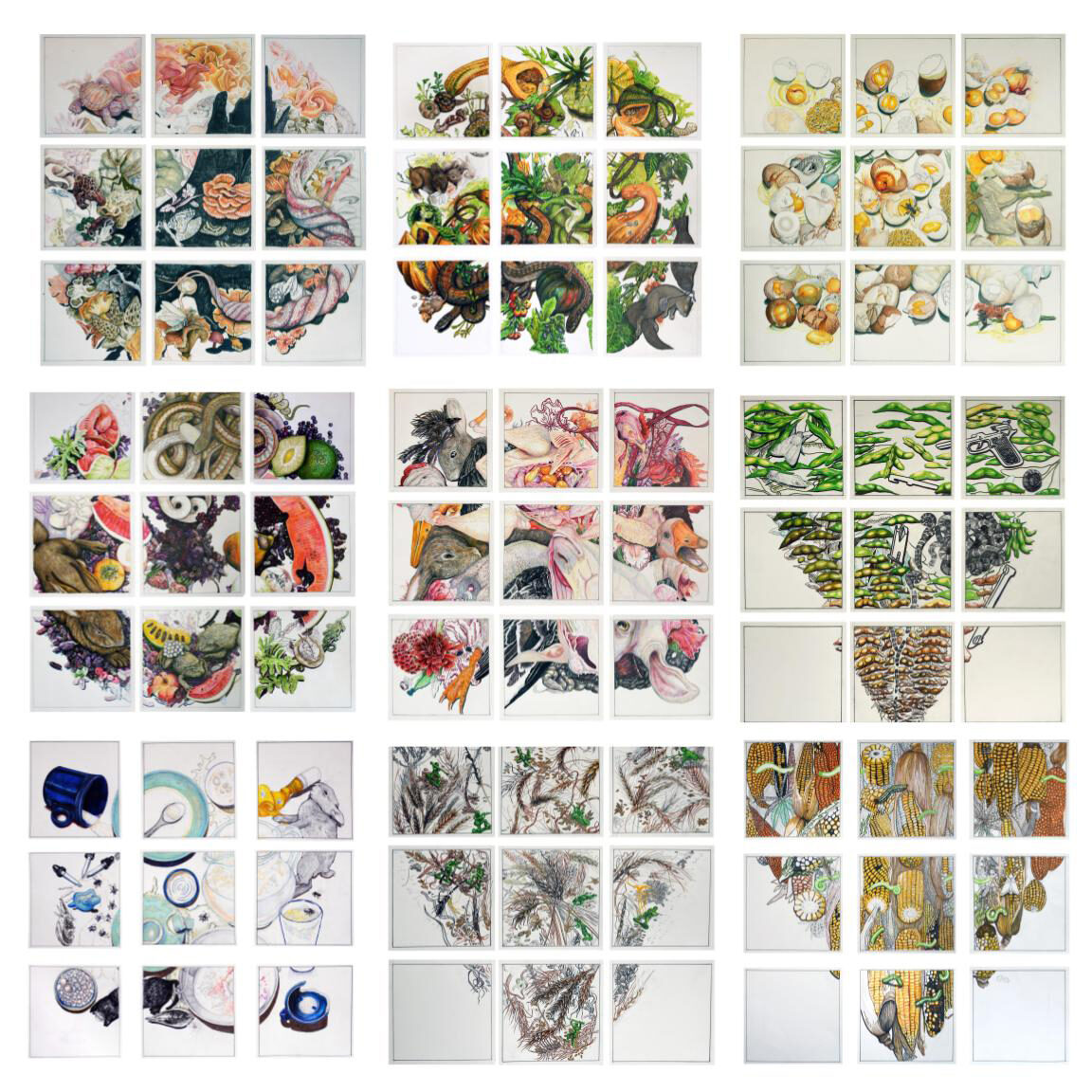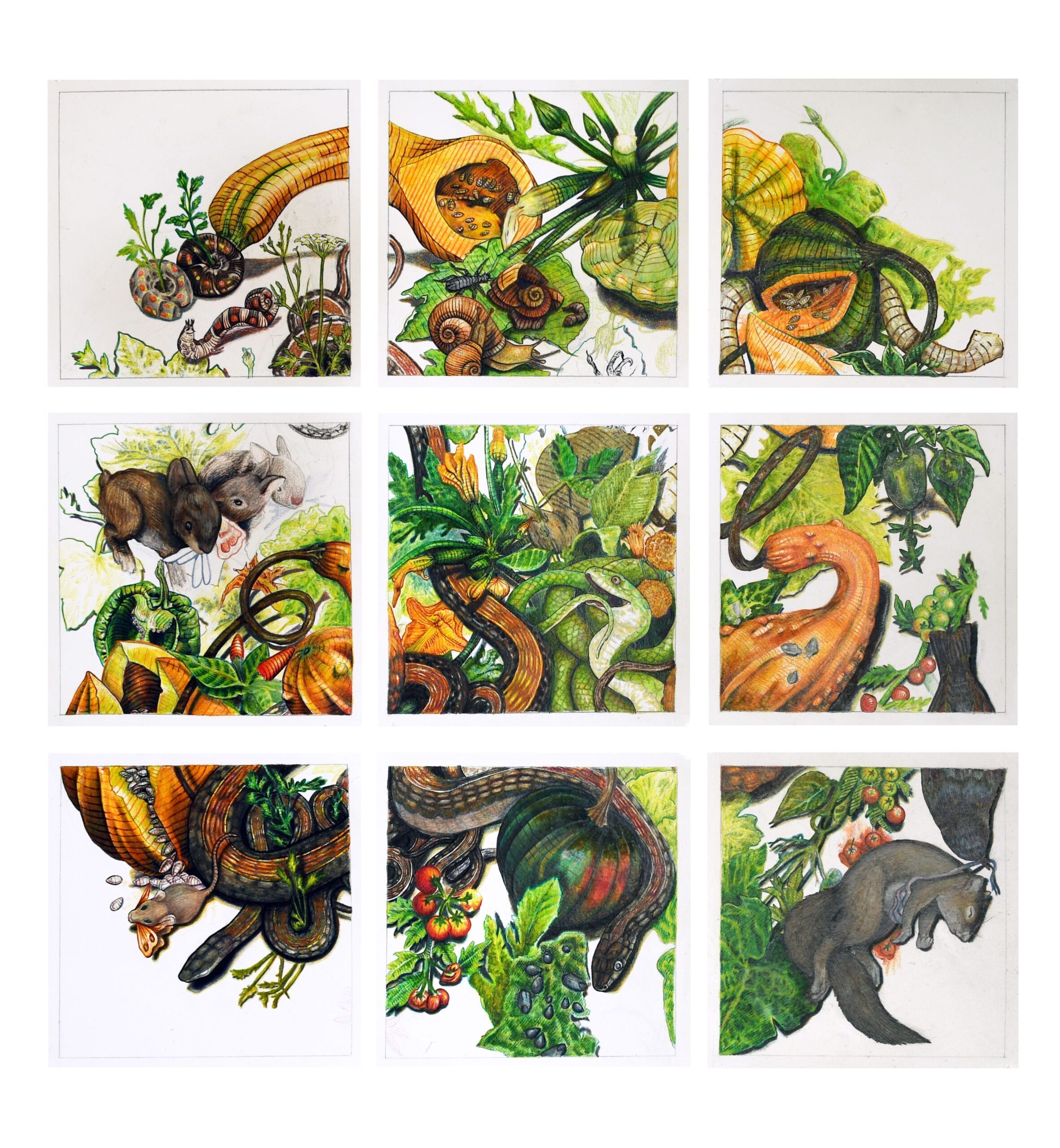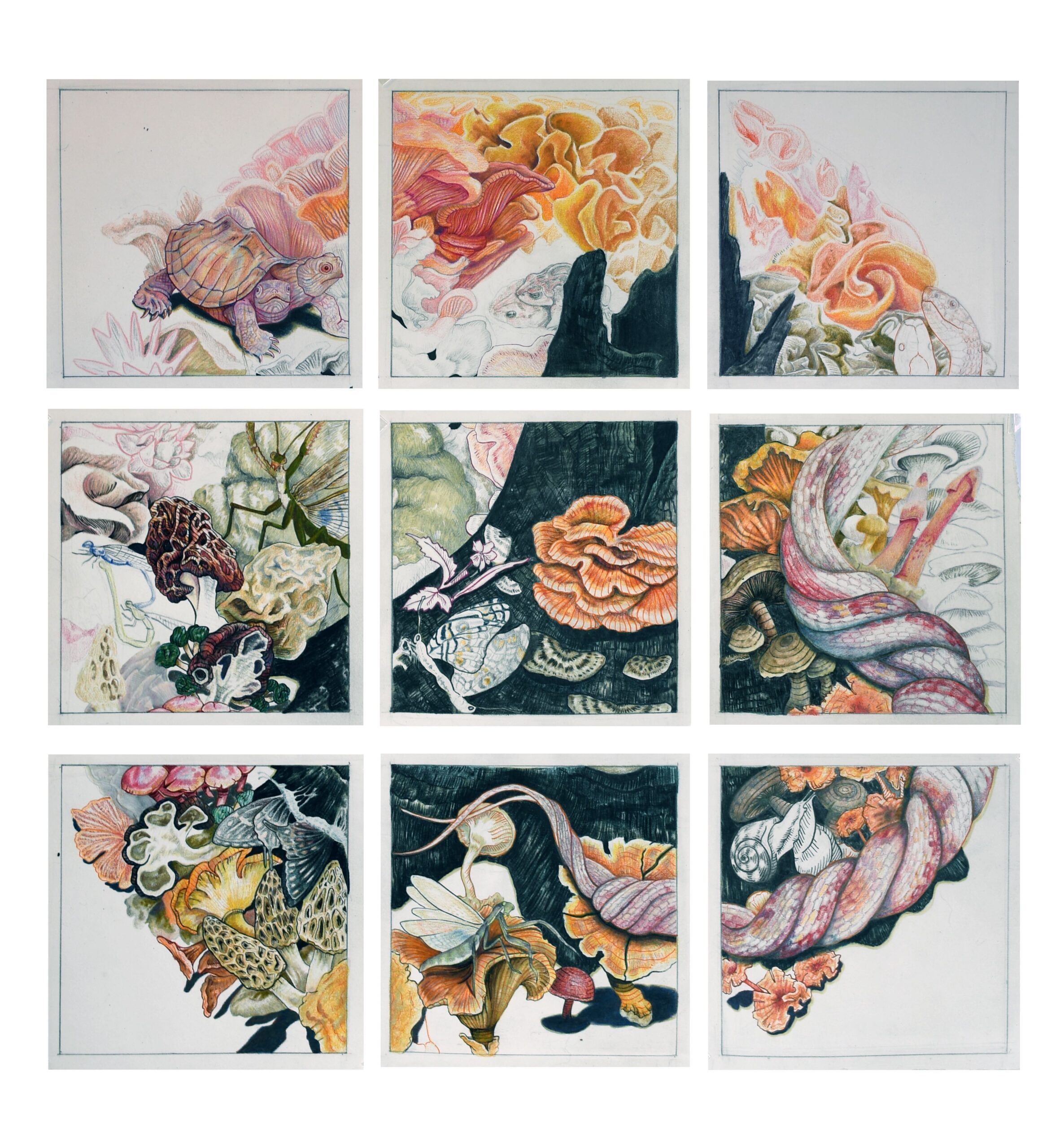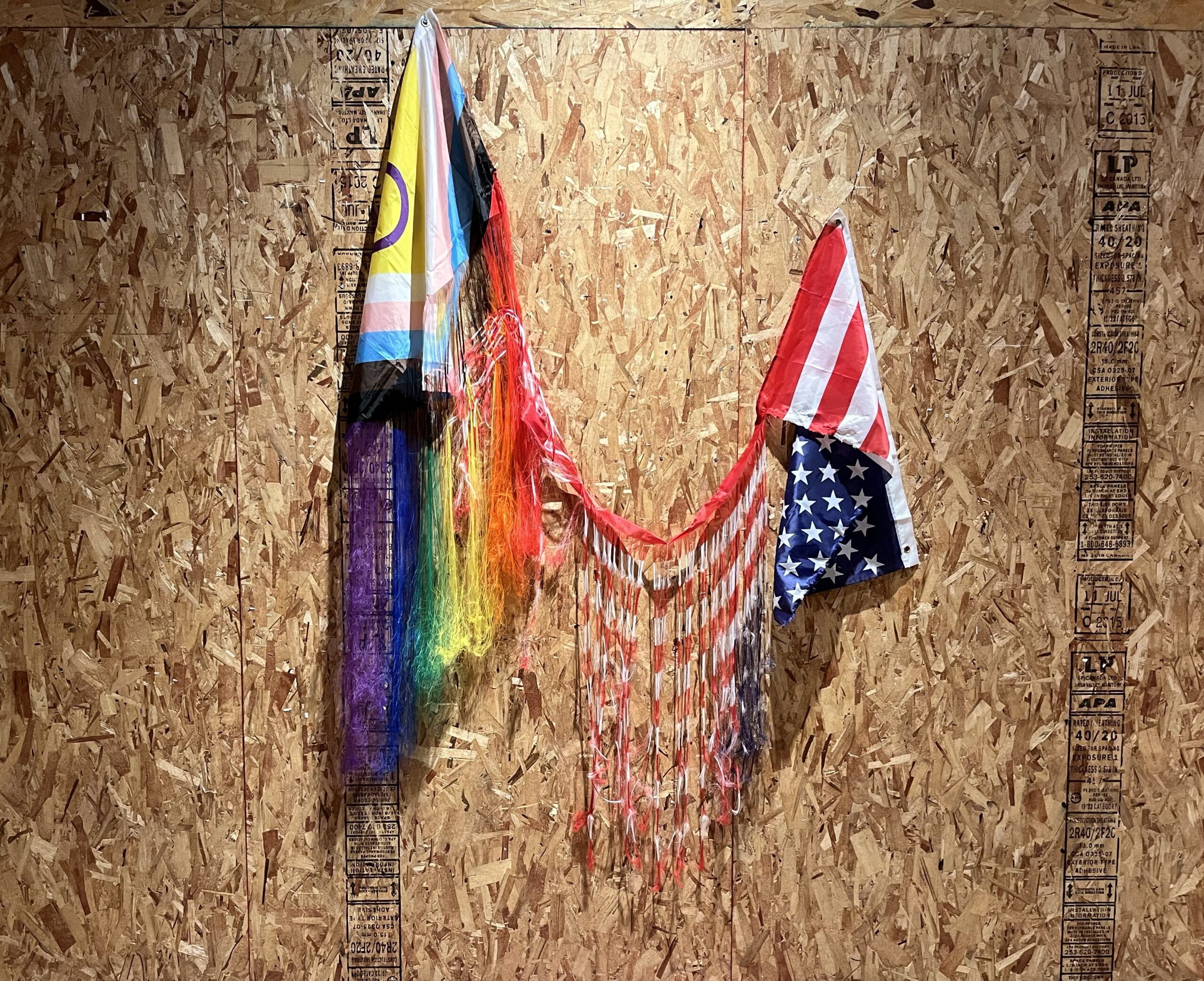
“My artwork is about relationships, even if they’re really bleak or tenuous,” says printmaker Lindsey Weber. “What are your relationships? How do you maintain or unravel those connections?” Weber has been exploring these themes in her prints, drawings, and mixed media installations for the past five years. During the pandemic, Weber’s marriage began to fall apart, and she ended up moving back into her mother’s house. Shortly thereafter, she realized that she identifies as queer and began to date women. This journey of self-discovery prompted her to create Feed, a series of 81 detailed drawings of agrarian subjects representing her relationship with her ex-husband and the life they shared together on his family’s working farm in Nebraska. The series was “inspired by Dutch still lifes,” she says, “life and death and the unraveling of my relationship and a breaking of my life.” It will be on display at Archway Studios in Lincoln, Nebraska, in September.
Over the past year, Weber has made two other large works about relationships and identity: a print about her relationship with her current girlfriend, and a large installation piece at Project Project, a gallery in Omaha. The first, part of a print series called “The Nebraska Nine” by local Lincoln artists, depicts Weber and her girlfriend in a loving embrace. “We live in red state; I’m living in a pretty rural place,” she says. “It’s still a political statement to be in a relationship with a woman.” The other, The Promise of Things, is a commentary on the pride flag and its place in queer history. For part of the installation, she partially unraveled a pride flag and an American flag and tried to weave them back together—“a failure,” as she put it. “Using a flag, this thing that is about territory and empire, to define your sexuality and who you love—there’s just something about it that seems off to me,” she says. Ultimately, she says, both works wouldn’t have been possible without her realizations five years ago about herself, her identity, and her relationships.







